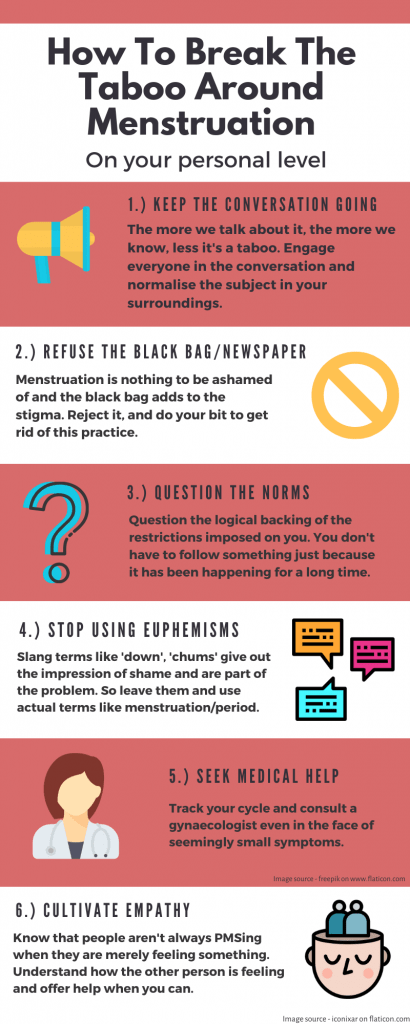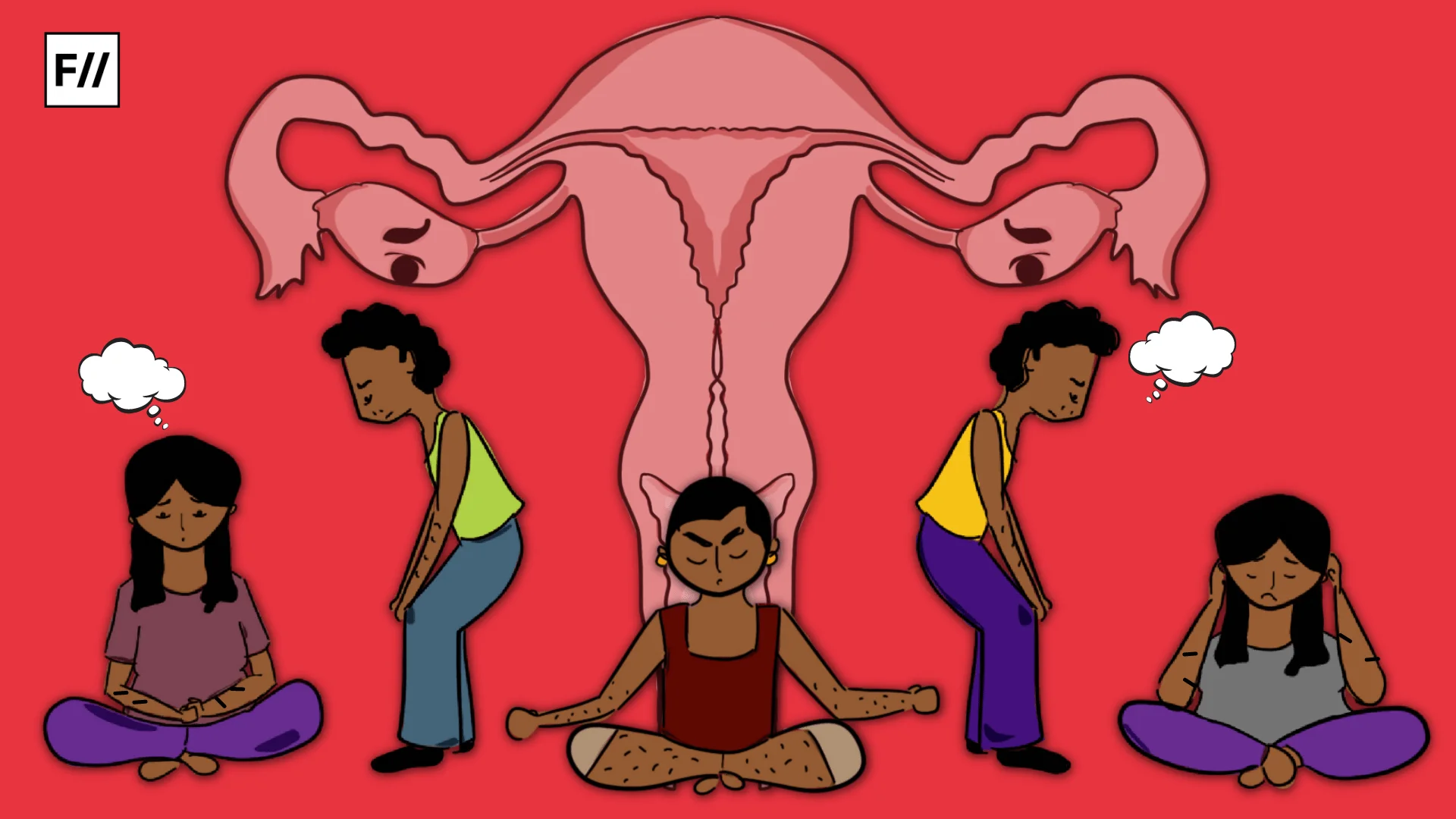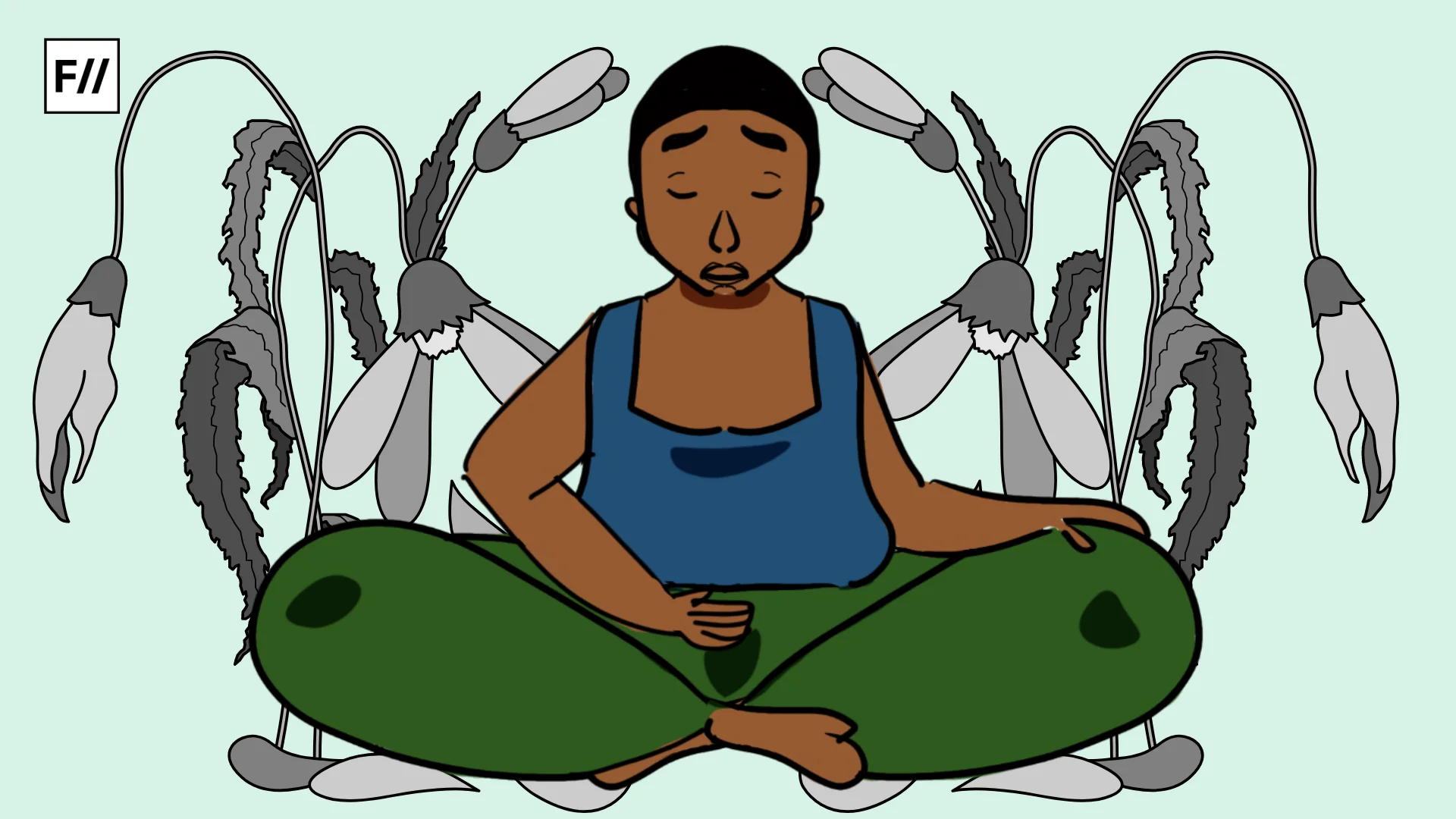On the outset, menstruation is a monthly cycle that half of the world’s population goes through. But once we dive deeper, this has big implications in social, economic, and health dimensions. Due to lack of proper information about period and menstrual hygiene and consequent menstrual taboo, millions of girls are forced to drop out of schools, married off at an early age, unable to join the workforce and become very conscious, leading them to despise their bodies.
‘Down,’ ‘chums,’ ‘that time of the month’ are terms synonymous with menstruation. A lot of negative connotations have been attached to it since time unknown. When faced with regressive period-related restrictions, we are infuriated as to why a normal anatomical process is termed as impure. Although there has been a lot of progress regarding women’s reproductive health, it still becomes a difficult task for us to change the conservative mindset and socio-cultural taboos on menstruation practiced in the society.
Also read: The Menstruation Benefit Bill Proposes Two Days Menstrual Leave. Does This Help Women?
Not all of us can go out of our ways to educate everyone about periods, but what we can do is change the conversations we have on a daily basis. We can’t change everyone around us but we can change our own discourse which also contributes to change.
So what can you do on your personal level to combat menstrual taboo, you ask? Let me guide you with this infographic:

Also read: It’s 2018, Why Are We Still Stigmatising Menstruation?
These little changes in your own life can contribute significantly to the bigger picture. We all have to come together and systematically break down this taboo for the times to come. Let’s bring more inclusivity in our conversations and combat the beliefs that keep girls out of schools.
Featured Image Source: NPR.org
About the author(s)
Anvi Ahuja is pursuing her bachelor's degree in Political Science at Delhi University. When she's not talking to dogs, you can find her reading, talking about feminism or breaking the taboo around menstruation.




